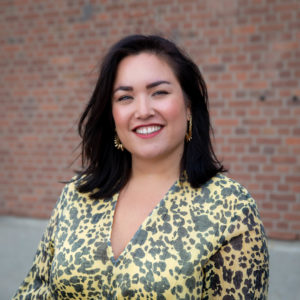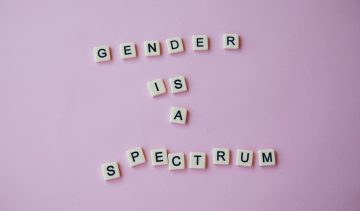For some people, it is very clear who they are attracted to. But, for others, it isn’t as clear and they might be having some doubts about their sexual orientation. Others might be very sure about who they’re attracted to, but don’t feel comfortable with it yet. Finding out that you’re not attracted to the people you thought you were attracted to, can be confusing. Feelings of loneliness and insecurity are common. Another factor is the fact that sexual diversity is not accepted by everyone. Unfortunately, many non-heterosexual people face insults and even violence. This sometimes makes the process of self-acceptance very difficult.
What does the term “sexual orientation” mean?
Sexual orientation refers to emotional, romantic, or sexual attraction to a different gender, same-sex, both or all genders, or having no attraction at all. The most well-known sexual orientations are heterosexuality, homosexuality, bisexuality, and asexuality.
Everyone is unique and no person is the same. So, it’s not surprising that differences exist in sexual orientation as well! In this article I’ll discuss the most well-known sexual orientations (so not all of them). For example, you may have an asexual orientation. Asexuality is a lack of sexual attraction. Want to know more about asexuality? Read more about it in this article.
You can also be pansexual. This means that you fall in love with people and that it doesn’t matter whether someone is a woman, a man, or something in between. ‘Pan’ means ‘everything’ in Greek. If you are attracted to someone of the same sex, then you have a homosexual orientation. If you like someone of the opposite sex, then you have a heterosexual orientation. You can also fall for both genders, then you are bisexual.
It’s not a choice
Your sexual orientation is not a choice; it’s in your nature, you’re born that way. And there’s nothing wrong with that! But just because you don’t have a choice, doesn’t mean the process of self-acceptance goes naturally. Discovering that you are gay, for example, can cause a lot of confusion and feelings of insecurity. Know that these feelings are normal and that you’re not strange.
What can you do?
Do you feel insecure about your sexuality or do you find it difficult to accept your sexuality? There are a few things you can do:
- Discover your sexual orientation and take the time to find out exactly what your sexual preference is. It is normal to take a little longer and/or not be completely sure. For example, it may be that you thought you were bisexual, but after a while, you find out that you are homosexual or vice versa.
- Give yourself time to get used to it. Some take longer for this than others. If you have a supportive environment, it will probably be easier to come out and accept your sexuality. But if your parents and/or close environment are less or not supportive, it is often difficult to admit your orientation.
- Talk to someone you trust. Think of friends, family, colleagues. Perhaps you know someone close to you who is gay, bisexual, pansexual or asexual. By exchanging ideas, tips, and experiences you create a bond with each other. You will feel less insecure and alone. If you don’t have people around you that you trust, or if you don’t yet dare to talk about it with those around you, you can look for support via the Internet, help groups, and forums.
- Give others space. Just as it took you time to discover how you feel and what your sexual preference is, it may also take others some time to understand it properly.
- It is sometimes difficult to talk to others about your sexual orientation. Maybe you don’t dare yet because you are afraid of being rejected or not accepted. It can help to talk about it with someone you don’t know, someone who won’t judge you and is knowledgeable at the same time. A psychologist can help you in your search and acceptance process. During treatment, you learn to understand, accept and shape your sexual orientation. You don’t have to do it alone!
Help
Do you struggle with your sexual orientation, or does your environment not accept it? Bibi comes from a religious family, where her sexual orientation was difficult to accept. Because she was having a hard time with this, she sought help. Here you can read her story and experience with online help.
For more information about online help through NiceDay, click here.











